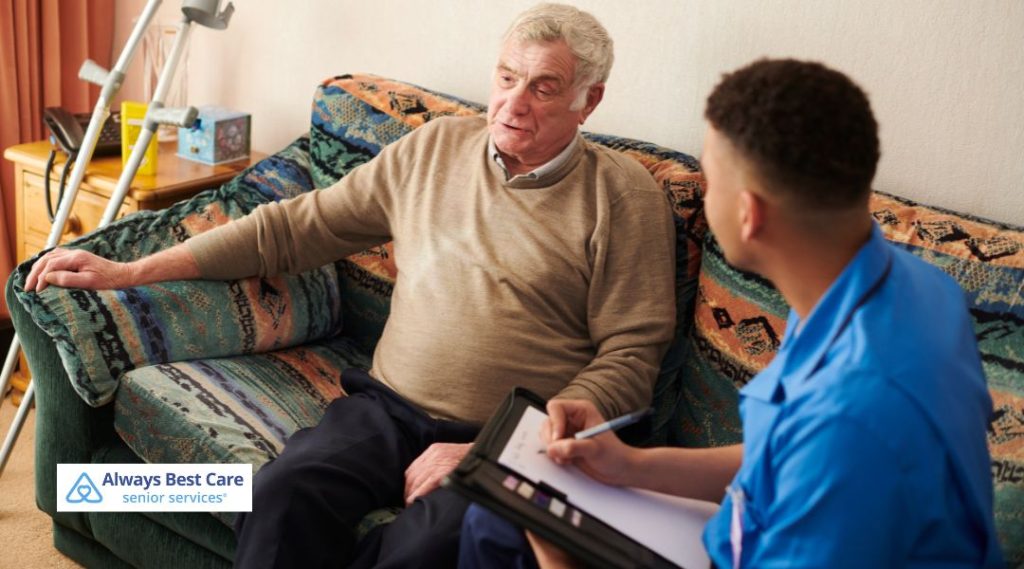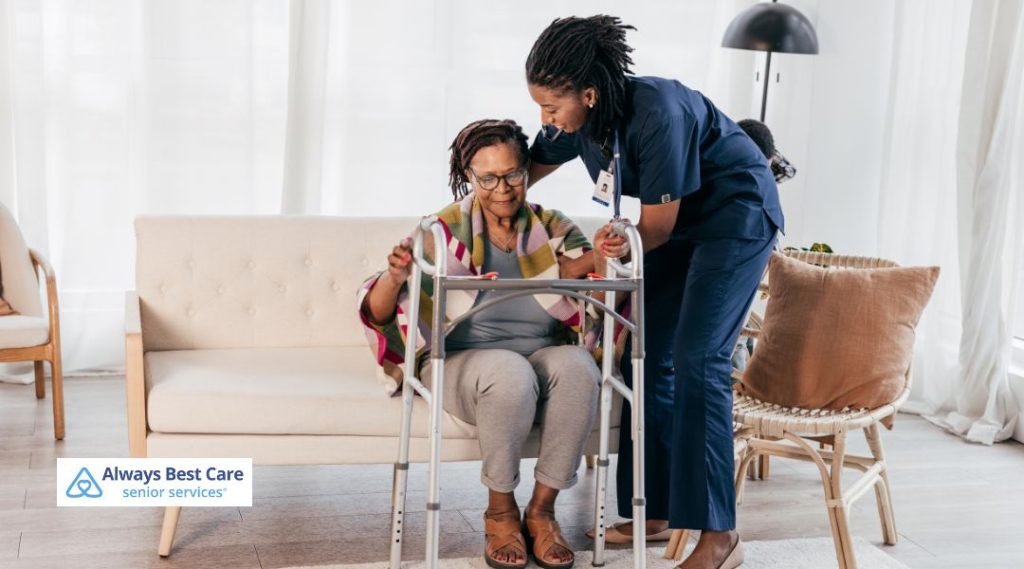Building Stronger Connections: The Role of Companionship in Home Care in Milwaukee

As we age, maintaining meaningful relationships becomes increasingly important. In Milwaukee, companionship plays a vital role in enhancing the well-being of seniors receiving home care. Beyond assistance with daily tasks, companionship offers emotional support, mental stimulation, and a sense of belonging.
Table of Contents
Why Companionship Matters for Seniors
Loneliness and isolation can significantly impact a senior’s physical and mental health. Regular social interaction stimulates cognitive functions, elevates mood, and helps prevent depression.
Having a companion at home provides reassurance, fosters connection, and encourages engagement in daily activities.

Emotional and Mental Health Benefits of Companionship
Companionship offers more than just social interaction—it provides emotional support that strengthens mental resilience. Engaging conversations, shared experiences, and consistent interactions create a sense of belonging and purpose.
Studies have shown that seniors with regular companionship experience lower stress levels and improved overall happiness.
Physical Health Advantages
Social connections do more than provide emotional support—they actively contribute to better physical health. Seniors who have regular companionship experience lower stress levels, improved cardiovascular health, and a greater likelihood of engaging in healthy habits.
From encouraging physical activity to supporting proper nutrition, companionship plays a vital role in maintaining overall well-being.
Reducing Stress and Promoting Heart Health
Chronic stress can have serious effects on the body, including higher blood pressure, an increased risk of heart disease, and a weakened immune system. Social interaction helps lower cortisol levels, the hormone responsible for stress, leading to better heart health.
Studies show that seniors who engage in meaningful conversations and social activities tend to have lower blood pressure and a reduced risk of stroke. Whether it’s chatting with a caregiver, enjoying a meal with family, or participating in a community event in Milwaukee, regular social engagement contributes to a healthier cardiovascular system.
Encouraging Light Physical Activity and Movement
Seniors with regular companionship are more likely to stay active, which helps maintain mobility, flexibility, and strength. Even simple activities like walking around the neighborhood, stretching, or doing chair exercises can significantly improve physical health.
Having a companion to provide encouragement makes movement more enjoyable and helps seniors stick to a routine. Walking in a local Milwaukee park, gardening in the backyard, or dancing to a favorite song at home can keep seniors engaged and physically active while reducing stiffness and muscle loss.
Supporting Proper Nutrition and Healthy Eating Habits
Eating well is essential for maintaining strength and preventing illness, but many seniors struggle with meal preparation and appetite loss. Companionship during meals makes eating a more enjoyable experience, encouraging better food intake and hydration. Caregivers can assist with meal planning, grocery shopping, and preparing nutritious meals, ensuring seniors get the vitamins and minerals they need.

Improving Recovery from Illnesses or Surgeries
A strong support system plays a key role in how well and how quickly a senior recovers from illness or surgery. Companionship provides motivation to follow recovery plans, take medications on time, and attend follow-up appointments.
Having someone present to assist with mobility and remind seniors to stay hydrated, eat properly, and complete physical therapy exercises can significantly speed up the healing process. Whether it’s recovering from surgery or managing a chronic condition, seniors in Milwaukee benefit from the added encouragement and support that companionship provides.
How In-Home Caregivers Provide Companionship
Caregivers offer companionship in various ways, from engaging in friendly conversations to accompanying seniors on outings.
Whether it’s playing board games, reading together, or assisting with hobbies, caregivers help seniors stay socially active. Their presence fosters a sense of security and reassurance, promoting overall well-being.
Strategies for Helping Seniors Safely Age in Place
Aging in place allows seniors to remain in their own homes, surrounded by familiar comforts and routines. However, ensuring safety and ease of daily living is essential to maintaining independence.
By making thoughtful modifications, encouraging social interaction, and integrating helpful technology, seniors in Milwaukee can continue living at home with confidence.

5 Home Modifications for a Safer Living Space
Creating a secure home environment is one of the most effective ways to support aging in place. Simple adjustments can prevent falls and make daily tasks easier:
- Enhance Bathroom Safety: Bathrooms pose one of the greatest risks for falls. Installing grab bars near toilets and inside showers, using a sturdy shower chair, and placing non-slip mats on the floor can prevent accidents.
- Improve Lighting: Dim lighting can lead to missteps and falls. Adding brighter bulbs, nightlights in hallways, and motion-sensor lighting can enhance visibility and prevent tripping hazards.
- Remove Obstacles and Tripping Hazards: Rugs, cluttered pathways, and loose cords can easily cause falls. Securing or removing loose carpets, organizing walkways, and keeping frequently used items within reach reduce risks.
- Install Handrails and Ramps: Sturdy handrails on both sides of staircases benefit seniors who have difficulty navigating them. Ramps provide easier access to entryways for those using wheelchairs or walkers.
- Adjust Kitchen Setup: Placing frequently used dishes, utensils, and cooking supplies within easy reach minimizes the need to stretch or climb. Additionally, an induction cooktop is a safer alternative to gas or electric stoves, reducing fire hazards.
By making these adjustments, seniors can move through their homes more safely while maintaining their independence.
Helping Seniors Downsize and Clear Away Clutter
Downsizing can be a liberating experience but may feel overwhelming. To assist seniors in Milwaukee:
- Set Clear Goals: Determine the reasons for downsizing, such as moving to a smaller home or simplifying life, to guide decisions and maintain motivation.
- Start Small: Begin with manageable areas to avoid feeling overwhelmed, tackling one room or space at a time.
- Evaluate Belongings: Assess each item’s usefulness and sentimental value, considering the one-year rule—if it hasn’t been used in a year, it might be time to let it go.
- Digitize Memories: Convert photos and documents into digital formats to preserve memories while saving physical space.
- Donate or Sell Items: Consider donating usable items to local Milwaukee charities or selling them through community sales, giving belongings a new purpose and benefiting others.
- Seek Support: Enlist help from friends, family, or professional organizers to provide motivation and assistance throughout the process.
Family Involvement: Strengthening Bonds
Family members play an essential role in maintaining a senior’s social well-being. Regular visits, phone calls, and planned activities strengthen bonds and provide emotional support. Encouraging open communication and scheduling family gatherings help create lasting connections that enrich a senior’s life.

How Always Best Care of Milwaukee Enhances Companionship in Home Care
At Always Best Care of Milwaukee, we provide personalized in-home care services to help seniors recover safely and comfortably. Whether you need assistance with daily tasks, medication reminders, or companionship during recovery, our compassionate team is here to help.
Reach out to Always Best Care of Milwaukee at (262) 439-8616 to schedule a free consultation and discover how our companionship services can make a positive impact on your loved one’s life. Together, we can ensure they feel supported, loved, and never alone.





